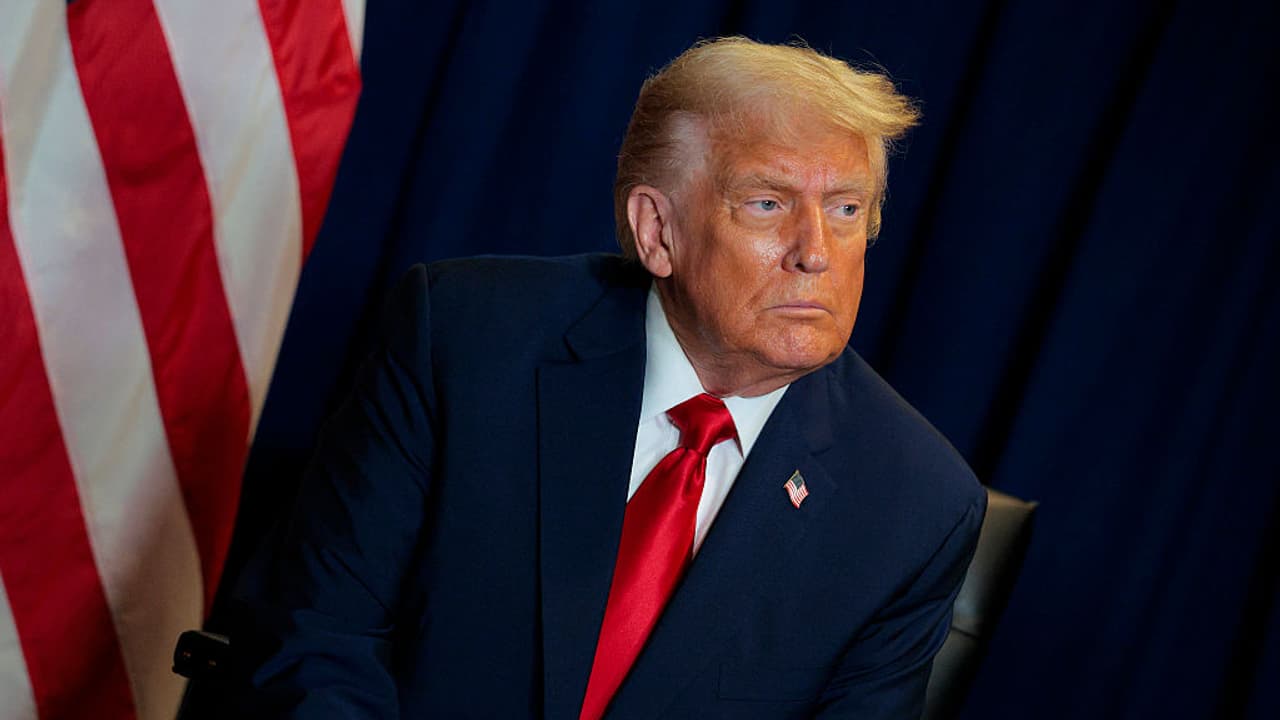The announcement follows recent threats of separate tariffs on goods like pharmaceuticals, furniture, and heavy trucks. A timeline for the proposed film tariff was not provided, and it remains unclear if television series would also be included.
Washington DC: US President Donald Trump on Monday, September 29 imposed tariffs on films made outside the United States, claiming his country’s industry has been “stolen” by others. Trump’s remarks come shortly after he threatened a slew of new tariffs to be imposed this week on branded pharmaceutical products, furniture, as well as heavy trucks respectively. On Monday, Trump returned his focus to the film industry, charging in a Truth Social post that other countries have taken business from the United States, “just like stealing ‘candy from a baby.'” He criticized California Governor Gavin Newsom as “weak and incompetent,” adding that the state has been heavily impacted. “In order to solve this long time, never ending problem, I will be imposing a 100% Tariff on any and all movies that are made outside of the United States,” Trump wrote. He did not provide further details on his plans, or a timeline for when these tariffs might be enacted. Trump’s latest decision follows a threat he made in May, when he said the US movie industry was “dying a very fast death.”
Tariffs Target Imports
At the time, he said he was authorizing the Department of Commerce and US Trade Representative to start the process of instituting a 100-percent tariff. The implications for the movie industry remain unclear for now. Hollywood is a major sector of the US economy, generating more than 2.3 million jobs and $279 billion in sales in 2022, according to data from the Motion Picture Association. But in the wake of the Hollywood strikes and the Covid pandemic — which changed how Americans consumed movies, opting to watch at home instead of in theaters — the industry has been struggling to regain momentum, industry insiders have said. Trump’s posts did not mention if television series, an increasingly profitable and popular sector of production, would be impacted.
Last Thursday, Trump had said he would slap separate tariffs ranging between 25 percent and 100 percent on branded pharmaceutical products, kitchen cabinets, upholstered furniture and heavy trucks. These were to start on Wednesday, he added, with patented pharma products seeing 100-percent duties unless firms were building manufacturing plants in the United States. Trump reiterated his threat on imported furniture, saying North Carolina “has completely lost its furniture business to China, and other Countries.”
Why is This Significant?
President Donald Trump’s decision to impose a 100-percent tariff on films made outside the United States has far-reaching implications for both Hollywood and the global film industry. By targeting foreign movies, the US administration aims to protect domestic studios from overseas competition, potentially boosting revenues for American productions. Hollywood, which supports over 2.3 million jobs and generated $279 billion in sales in 2022, is a major pillar of the US economy. Reducing competition from imports could help studios recover from the economic setbacks caused by the COVID-19 pandemic and recent Hollywood strikes, which altered movie consumption patterns, pushing audiences toward streaming and home viewing.
However, the move also raises questions about international trade relations. Other countries may retaliate with their own tariffs, potentially impacting US exports and leading to a broader trade dispute. The lack of clarity regarding television series and other entertainment formats further complicates the picture, as these increasingly profitable sectors are integral to the modern media landscape. Additionally, the announcement comes amid a broader set of tariffs targeting pharmaceutical products, furniture, and heavy trucks. These measures signal an aggressive push to incentivize domestic production across multiple industries, reflecting ongoing concerns over the U.S. trade deficit and economic competitiveness.
While the immediate effects on Hollywood remain uncertain, the tariffs underscore the intersection of culture, commerce, and politics. Industry insiders, policymakers, and audiences alike will be closely watching how these measures reshape film production, distribution, and consumption, both in the U.S. and abroad.
(With inputs from AFP)
